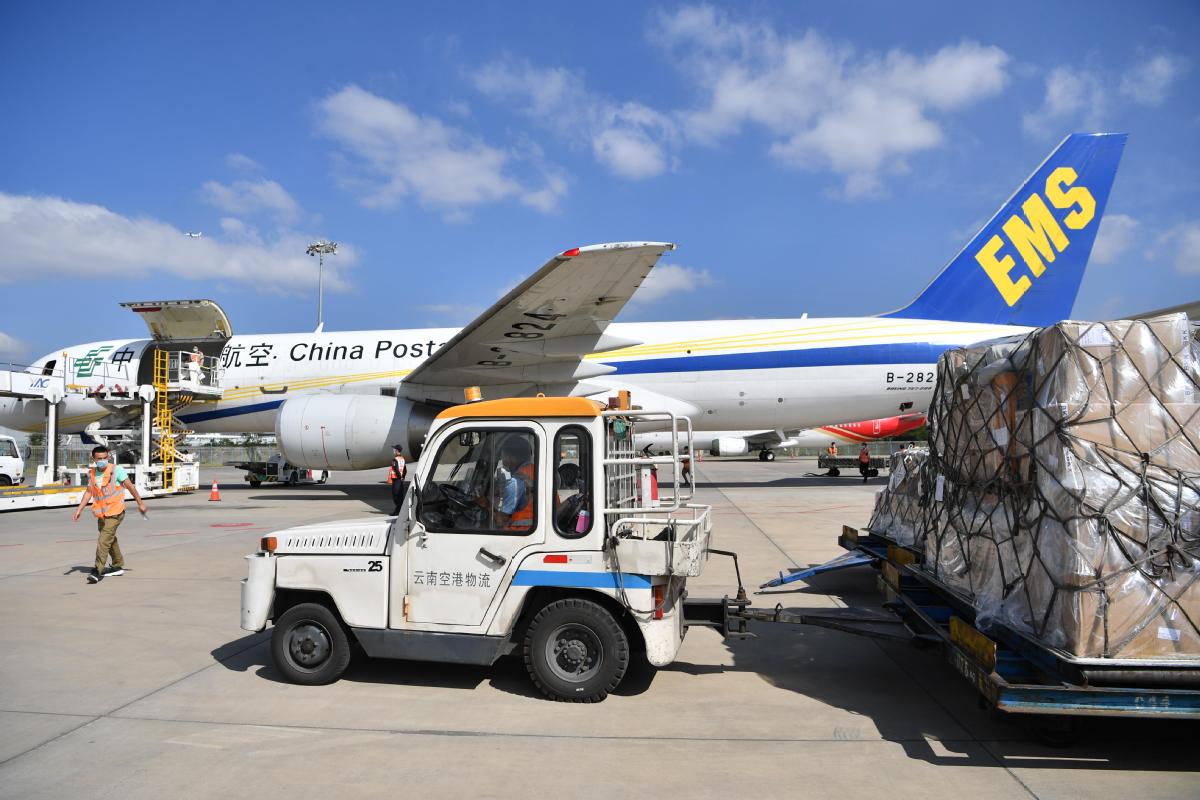China Post to further expand cross-border delivery


China Post Group Corp, the country's largest postal service provider with nearly 1 million employees, will expand its cross-border service models from the belly compartments of civil aircraft and cargo flights to railway and shipping services during the country's 14th Five-Year Plan (2021-25) period, its business executives said on Tuesday.
Following changes in global supply chains, which have been disrupted by the COVID-19 pandemic, and the classification of international delivery products by value and priorities, freight train service will become a key part of supporting China Post's international business in the coming years, said Zheng Shuangyin, deputy general manager of the International Business Department of China Post's Parcel, Express and Logistics Business Unit.
Based on existing service routes, including Chongqing municipality and Yiwu in Zhejiang province to the European cities of Madrid, Spain, and Malaszewicze, Poland, China Post to date this year has launched new self-organized routes linking Chinese cities such as Wuhan in Hubei province, Guangzhou in Guangdong province, Chengdu in Sichuan province, Xi'an in Shaanxi province and Urumqi in the Xinjiang Uygur autonomous region with many European cities, he said.
The target customers of the freight train service are mainly concentrated in the mid-to-high-end manufacturing sector that has seen high demand for stable supply chains, and are becoming diversified over time, the Beijing-based group said.
Because of the pandemic, major airlines around the world have either suspended or reduced flights. China Post organized 22 block train services from Chongqing, Yiwu, Zhengzhou in Henan province and Dongguan in Guangdong province, and shipped about 16,000 metric tons of mail, industrial goods and daily necessities to 36 European destinations through Poland and other countries in 2020.
With the tangible growth of the Belt and Road Initiative, the routes and frequency of the China-Europe freight train service have continued to increase, Zheng said, adding the average running time of the trains is 13 days, which is more than 20 days faster than ocean freight, and the price is only one-fifth that of airfreight. The cost, time limits and service level of the China-Europe freight train service have showed strong market competitiveness and popularity.
To deepen its connection with economies involved in the BRI, Zheng said the group's long-term goal is to link its railway-based postal network with economies of the land-based Silk Road Economic Belt and the oceangoing 21st Century Maritime Silk Road, to expand international business, and drive transformation and development with innovative service solutions.
Jiang Yanzhao, chair of Rail Contact Committee of the Universal Postal Union, said China's efforts to improve international railway shipping rules and standards, together with the World Customs Organization, relevant international railway organizations and countries, will ensure the world's supply chain and provide a better platform for export-oriented companies to have another convenient option to ship their goods.
Backed by more than 30 cargo flights and 170 trains, China Post's profit soared 12.5 percent on a year-on-year basis to 60.64 billion yuan ($9.37 billion) in 2020. The company's first half profit this year also reached its highest level in the past five years.
Apart from adding air and rail cargo postal services, China Post also reached agreements with postal authorities in Japan, New Zealand and Israel in the first quarter to conduct maritime postal delivery services by partnering with China COSCO Shipping Corp, another central SOE and the nation's largest shipping company, since the second quarter of last year.
As an essential part of the national economy, the strategic value of the postal and express businesses driven by strong market demand and technology upgrading will gain fresh momentum and be more digitalized to help facilitate China's economic growth this year, said Feng Hao, a researcher at the National Development and Reform Commission's Institute of Comprehensive Transportation in Beijing.
"The China-Europe Railway Express freight train service is not only a marked achievement of BRI cooperation, but will also help facilitate China's new dual-circulation growth paradigm, especially in China-Europe freight train-based integrated freight sectors such as warehousing, freight forwarding, and regional connectivity-related infrastructure projects," Feng said.
Restructured in 2019, China Post's business mainly focuses on postal services, express and logistics, finance and e-commerce. Its branches at different levels provide universal postal and special services such as confidential communication and the distribution of newspapers and periodicals.




































